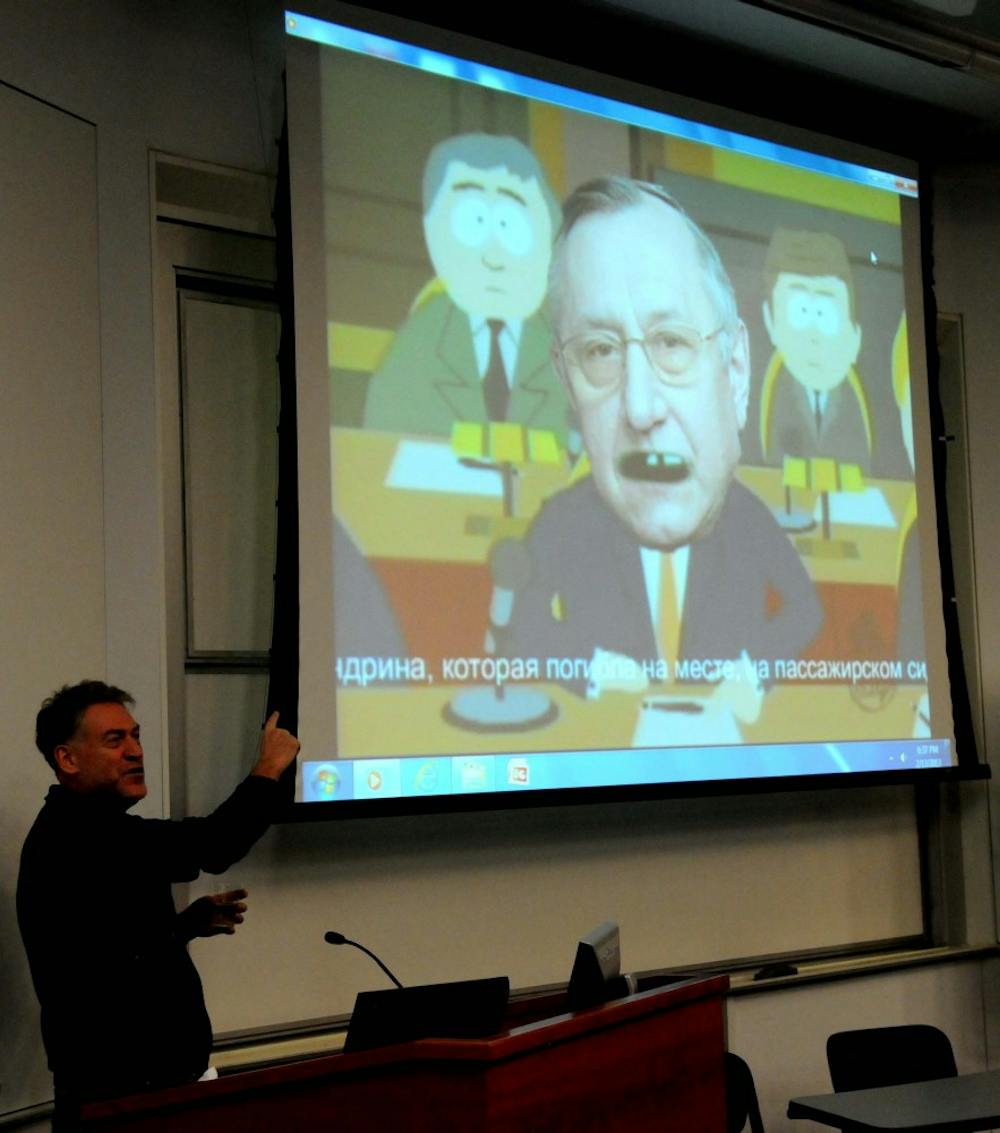Much like the recent rise of Russian protest rock, Artemy Troitsky is both outspoken and entertaining.
Troitsky, a prominent Russian journalist and music critic, gave a lecture Wednesday night at the Annenberg School of Communication entitled “Enemies of the State: Pussy Riot and the New Russian Protest Rock.” The event, hosted by the Department of Slavic Languages and Literatures, offered a unique perspective on the contemporary Russian protest movement.
Troitsky began his lecture by offering a brief history of 21st-century Russian political culture — a culture that has become increasingly contentious due to growing disapproval of Russian President Vladimir Putin. Troitsky repeatedly offered an extremely blunt and often humorous analysis of this political culture throughout his lecture.
“Sex, drugs, rock and roll, violence, whatever,” he quipped, explaining that the Russian government’s attitude toward protest is simply: “Do whatever you want, but never touch upon the topics of politics or corruption.”
However, many Russian musicians are indeed touching upon these topics, much to the disdain of the government. According to Troitsky, a new Russian protest collective known as “The White Movement” is emerging, spearheaded by the arrest and prosecution of several members of Pussy Riot, a Moscow-based feminist punk rock group.
When discussing Russian protestors, Troitsky said, “They are looking for support but not finding it because everyone is scared. Everyone is asleep.”
However, he also remained optimistic about The White Movement, describing it as “the end of the sleepy decade and the beginning of something completely unrelated.”
The White Movement, named after the famous Beatles album, is composed primarily of anti-establishment rock bands. These bands use rock music as a form of protest, writing songs such as “Putin’s Gang Behind Bars” and “Virgin Mary, Put Putin Away.”
Related
While the movement is certainly political, Troitsky said it isn’t comparable to the economic-based Occupy Wall Street movement.
“I think that human dignity is the key thing if you want to understand the new Russian protest movement,” he said. “Russia is becoming a fascist state.”
College junior Ruslan Zagatskiy said he came to see Troitsky speak because he is a Russian major. “It’s exciting to see someone part of the movement,” he said. “People are just as passionate about issues in Russia as they are about Occupy Wall Street and the Arab Spring.”
Others attended out of curiosity, like College junior Alix Meyer. “I have some Russian music on my iPod, so it was interesting to learn about how their music is usually more political than ours,” she said.
At the end of the lecture, Troitsky summed up his presentation in response to a question about why music is an effective form of protest.
“Well, I think music is the most popular and easy way of expressing yourself,” he said. “Simple as that.”



